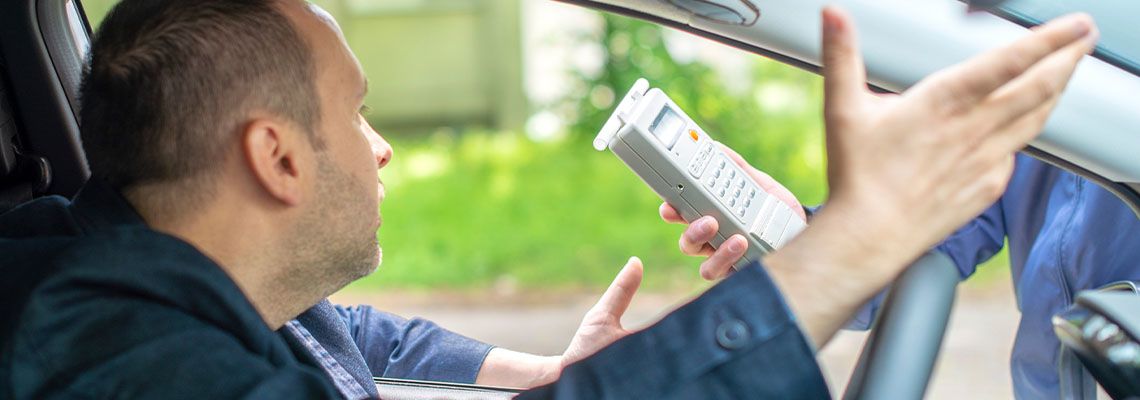
Can You Refuse a Field Sobriety Test in Texas? And Should You?
Something about telling a police officer "No" may feel wrong, but you're totally allowed to refuse a field sobriety test. Many people are unsure of their rights regarding these tests and how to go about handling a DWI stop. I'm here to provide some insights.
What Are Field Sobriety Tests?
Field sobriety tests are a group of physical and cognitive tests utilized by law enforcement officers to evaluate if a driver is impaired by alcohol or drugs. These tests aim to measure a person's balance, coordination, and ability to follow instructions. The most common field sobriety tests include the one-leg stand, walk-and-turn, and horizontal gaze nystagmus.
While it may seem straightforward, these tests are not as simple as they appear. They are designed to challenge you physically and mentally, and even a sober person may struggle to perform them perfectly. It's also important to remember that the results of these tests can be highly subjective, relying heavily on the officer's interpretation.
Can You Refuse a Field Sobriety Test in Texas?
The short answer is yes. You have the right to say no to a field sobriety test in Texas. Not many people realize this, but these tests are voluntary, and there is no legal obligation for you to participate. An officer may try to persuade you to take the tests, but you have every right to decline.
If you do choose to refuse, it's crucial to remember to handle the situation respectfully and calmly. Refusing to take a field sobriety test doesn't automatically mean you'll be arrested or charged with a crime. However, it could arouse suspicion and may lead the officer to consider other evidence when determining your sobriety.
Should You Refuse a Field Sobriety Test?
Whether or not you should refuse a field sobriety test depends on your specific situation. While it may seem like a good idea to avoid potentially incriminating evidence, you should also consider the consequences. Refusing a field sobriety test may lead to the officer becoming more suspicious and potentially arresting you based on other observations or evidence. It's a decision that requires careful consideration and understanding of the potential repercussions.
Benefits of Refusing
From my extensive experience handling these cases, I can tell you that refusing a field sobriety test could potentially work in your favor. Here are some reasons why:
Avoiding Misinterpretation
Field sobriety tests are highly subjective and can often lead to misinterpretation. The officer administering the test has a significant impact on the results. For instance, factors such as the officer's training, the conditions under which the test is administered, and even your physical condition or health issues can influence the outcome. By refusing the test, you avoid potential misinterpretations that could work against you down the line.
Minimizing Incriminating Evidence
The less evidence there is against you, the better your chances of fighting a DWI charge. Field sobriety tests are designed to gather evidence of drug or alcohol impairment. By refusing to take these tests, you're minimizing the amount of incriminating evidence that the prosecution can use against you.
Pitfalls of Refusing
Remember, refusing a field sobriety test is a decision that should not be taken lightly. While it may prevent the officer from gathering more evidence, it could also lead to some drawbacks.
Immediate Suspicion
As mentioned earlier, refusing a field sobriety test could raise suspicion and lead to a more thorough investigation. If the officer believes you're trying to hide something or are under the influence, they may proceed with an arrest based on other observations or evidence.
Additional Consequences
Refusing a field sobriety test does not necessarily mean you won't face any consequences. In some cases, the officer may arrest you based on their observations and request a blood or breath test to determine your level of intoxication. If you refuse to take these tests as well, it could result in additional penalties, such as a driver's license suspension for up to 180 days.
Increase the Chances of Your Arrest
By refusing a field sobriety test, you're essentially giving the officer probable cause to arrest you. While they may not have had enough evidence to support an arrest before, your refusal could be used as justification for taking you into custody.
Your Rights Regarding Breath and Blood Tests
In addition to field sobriety tests, you also have the right to refuse breath and blood tests in Texas. However, be aware that refusing these tests can have serious consequences. If you refuse a breath or blood test, the officer may obtain a search warrant to administer the test. If a warrant is obtained, I'd advise you to comply with the test, because refusing a breath or blood test can result in the suspension of your driver's license for a longer period of time.
Seeking Legal Representation
If you have been arrested for DWI or are facing charges related to alcohol-related offenses, it is crucial to seek legal representation from an experienced DWI lawyer. As a lawyer who has successfully defended many clients against DWI charges in Dallas, Collin, Hunt, and Kaufman, I can help protect your rights, guide you through the legal process, and develop an aggressive defense strategy tailored to your specific case.
In conclusion, while you have the right to refuse a field sobriety test in Texas, it's important to carefully weigh the potential consequences of this decision. Refusing a field sobriety test could lead to further suspicion from law enforcement and potential license suspension.
If you find yourself in a situation where you're facing DWI charges, I strongly recommend consulting with a knowledgeable DWI lawyer who can guide you through the legal process and protect your rights. If you're in the Dallas area, reach out to my firm when you're ready to talk.
